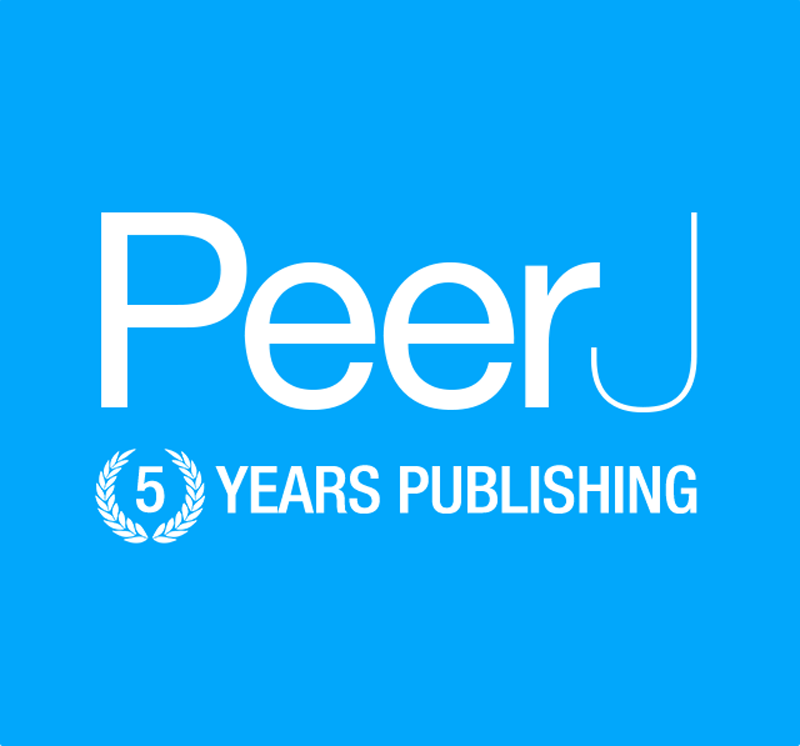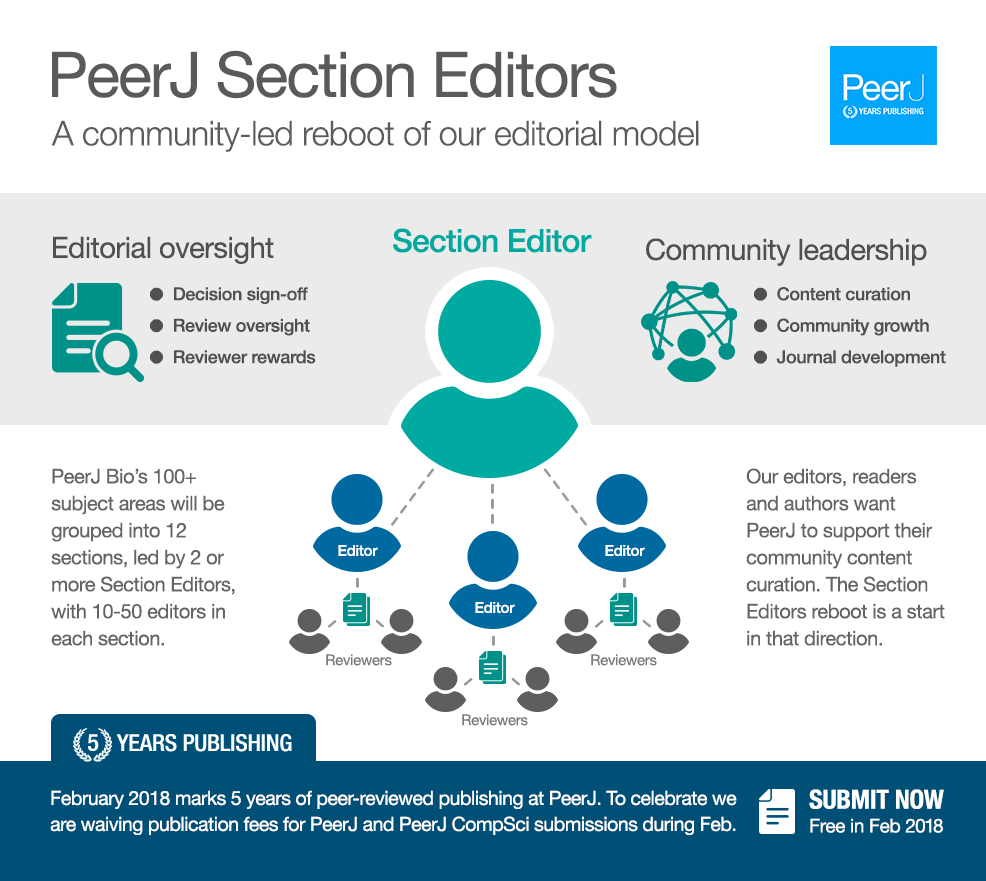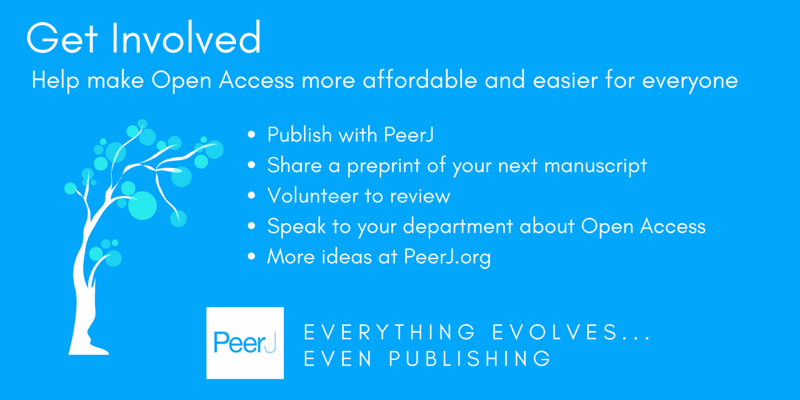 The month of February marks five years since we published our first peer-reviewed article in PeerJ – February 12th to be exact (and coincidentally shared with Charles Darwin’s birthday). To celebrate we are waiving all publication fees for any new February submission to either PeerJ or PeerJ Computer Science.*
The month of February marks five years since we published our first peer-reviewed article in PeerJ – February 12th to be exact (and coincidentally shared with Charles Darwin’s birthday). To celebrate we are waiving all publication fees for any new February submission to either PeerJ or PeerJ Computer Science.*
One more announcement – after five years of publishing and countless discussions with authors, reviewers and editors we’re giving the editorial model of PeerJ a ‘reboot’ that incorporates more community involvement. The one hundred plus subject areas will be grouped into about 12 sections, each with between 12-50 Academic Editors and 2 to 4 Section Editors leading it. The new Section Editor role is made up of experienced editors who are also full-time academics.
Section Editors will have two primary responsibilities. First, the Section Editors will have “sign off” authority over Academic Editors within their section for reject and accept decisions. This is to create more consensus in a journal publishing thousands of articles per year. Secondly, Section Editors will help to curate and highlight important new research findings published within their sections.
Why give the megajournal editorial model a makeover?
Before we launched, many wondered why the world needed another journal, let alone a “megajournal.” Others, mainly early adopters, were excited as it had been suggested that with “born-digital” journals there was no longer a need to have separate journals for each new subject area that appeared. A megajournal with its online-only interface could contain limitless subject areas and would be navigated through search and filters. Indeed, for many scholars, the way a literature search is initially performed now is via Google Scholar, PubMed, and the like.
While being able to set filters and limit search results to specific areas of concern there’s a sense of coldness to it. Feedback from authors and readers has often been that they felt lost due to the huge number of subject areas. Researchers need everything that is “publishable” available through search, but they also want to know what the research collective considers important. Citations, which hint at importance, take time to accrue, meanwhile readers are looking to be directed to critical new research when browsing. What powerful filtering tools and the world’s best search engines can’t replicate is a sense of community and human curation that is built-in to small subject-specific journals.

Communities are important as they bring a sense of shared values and norms. They bring familiarity. In the megajournal model, there is one Academic Editor per manuscript and two to three reviewers. Ultimately it is the single Academic Editor that makes a final decision, without consultation or agreement with the community (although journal staff provide some guidance). There can be 100 Academic Editors covering one subject, each acting independently.
For authors, the worry can be that there may not be consistency between decisions and it is down to the luck of the draw of which Academic Editor handles their submission. The reason megajournals are structured with this flat decision-making hierarchy is to improve speed from submission to final decision. Each layer of decision making built on top can delay publication times. The tradeoff for speed, however, is a partial loss in consistency, norms, and familiarity – or community.
The editors, readers, and authors we’ve spoken with don’t want to think of PeerJ as a megajournal navigated only through search algorithms. They are looking for a community with some level of curation. They want to be assured that they have a ‘home’ for their papers – a place to go to and browse, lurk, share and discuss. The grouping of subjects and the Section Editor model (explained in the infographic above) is a start in that direction.
Many thanks to Peter Binfield, Sierra Williams, and many of our current Academic Editors who have provided input and suggestions into this announcement.
Celebrate 5 years of high-quality, efficient and affordable Open Access publishing at PeerJ by submitting your manuscripts in February!
*Full Article Processing Charge (APC) Fee Waivers will be automatically provided for all manuscript submissions to PeerJ and PeerJ Computer Science started and submitted in February 2018. This offer ends Feb 28th 11:59 PM UTC (GMT). Manuscripts are subject to peer review and upon acceptance will be published. Submissions which result in a final typeset manuscript of 45 pages or more may incur an additional service charge to cover production costs.


